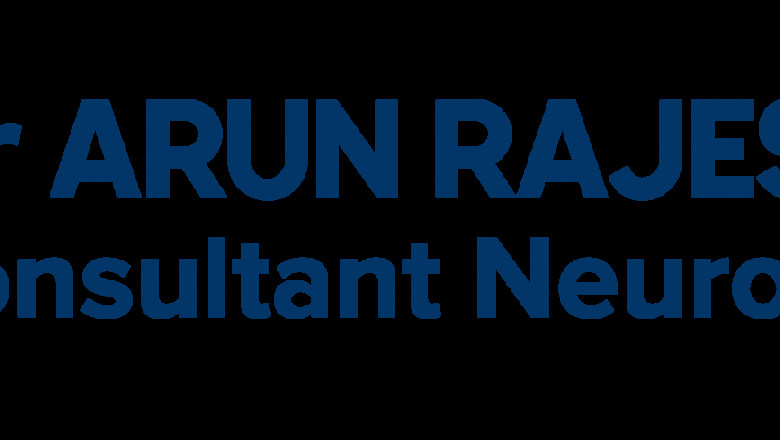views
A herniated disc, also known as a slipped or ruptured disc, is a common spinal condition that can cause significant discomfort, radiating pain, numbness, and even weakness in the arms or legs. It occurs when the soft inner gel of a spinal disc protrudes through a tear in the outer layer, often compressing nearby nerves.
With modern medical advances, disc herniation is no longer a condition that necessarily leads to long-term disability. However, choosing the right treatment depends on the severity of symptoms and the degree of nerve compression. To clarify the best approach, Dr. Arun Rajeswaran, a renowned spine surgeon in the UAE, shares expert guidance on the most recommended treatments for disc herniation.
Understanding Disc Herniation
The spine consists of vertebrae cushioned by intervertebral discs that act as shock absorbers. Over time, due to aging, repetitive stress, or trauma, these discs can become damaged. When the inner nucleus pulposus pushes out through a tear in the outer annulus fibrosus, it can compress spinal nerves, causing:
-
Lower back or neck pain
-
Sciatica (radiating pain down the leg)
-
Tingling or numbness in the limbs
-
Muscle weakness
Disc herniation most commonly affects the lumbar spine (lower back), but it can also occur in the cervical spine (neck) or thoracic region.
The Most Recommended Treatments for Disc Herniation
According to Dr. Arun Rajeswaran, the treatment approach for a herniated disc is typically stepwise, starting from conservative methods and progressing to surgical options when necessary.
1. Conservative (Non-Surgical) Treatment
Most patients with disc herniation recover with non-surgical care, especially in the early stages. This includes:
a. Physical Therapy
Guided exercises to strengthen spinal muscles, improve flexibility, and relieve pressure on nerves. A structured rehab program is often the first line of treatment.
b. Medications
-
NSAIDs (non-steroidal anti-inflammatory drugs) to reduce inflammation and pain
-
Muscle relaxants for spasms
-
Nerve pain medications like gabapentin if neuropathic symptoms are present
c. Epidural Steroid Injections
These injections deliver anti-inflammatory medication directly to the affected area, reducing nerve swelling and pain. They are often used when pain persists despite oral medications and therapy.
2. Minimally Invasive Spine Surgery (MISS)
If symptoms persist beyond 6–8 weeks or worsen, especially if there is muscle weakness, severe pain, or loss of bladder/bowel control, surgical intervention may be recommended.
The most recommended surgical option is:
Microdiscectomy
A minimally invasive procedure where the herniated portion of the disc is removed to decompress the nerve root. It offers:
-
Small incision
-
Minimal tissue disruption
-
Faster recovery and less postoperative pain
Dr. Arun Rajeswaran is highly experienced in minimally invasive spine surgeries, offering patients reduced hospital stays, fewer complications, and faster return to normal activities.
3. Advanced Surgical Techniques
In complex cases or recurrent herniations, advanced procedures may be necessary, such as:
-
Endoscopic discectomy – even less invasive than microdiscectomy
-
Artificial disc replacement – used in selected cervical disc cases
-
Spinal fusion – when there is spinal instability or degeneration
Each patient’s case is carefully evaluated through MRI imaging, neurological exams, and lifestyle analysis to choose the optimal path.
Why Choose Dr. Arun Rajeswaran for Disc Herniation Treatment in UAE?
With years of specialized training and thousands of successful procedures, Dr. Arun Rajeswaran is recognized as one of the best spine surgeons in the UAE. He focuses on:
-
Accurate diagnosis using state-of-the-art imaging
-
Conservative-first approach to minimize unnecessary surgery
-
Expertise in minimally invasive and complex spinal surgeries
-
Personalized rehabilitation and post-op care
His holistic approach ensures that patients not only recover but regain long-term spinal health and quality of life.
Final Thoughts
So, what is the most recommended treatment for disc herniation? It largely depends on the severity of the condition, but non-surgical methods like physical therapy, medications, and injections are effective in most cases. For persistent or severe symptoms, minimally invasive spine surgery such as microdiscectomy remains the gold standard.
If you’re experiencing symptoms of a herniated disc or chronic back pain, don’t wait. Book a consultation with Dr. Arun Rajeswaran, UAE’s trusted name in spinal care and surgery, and take the first step toward a pain-free life.






















Comments
0 comment